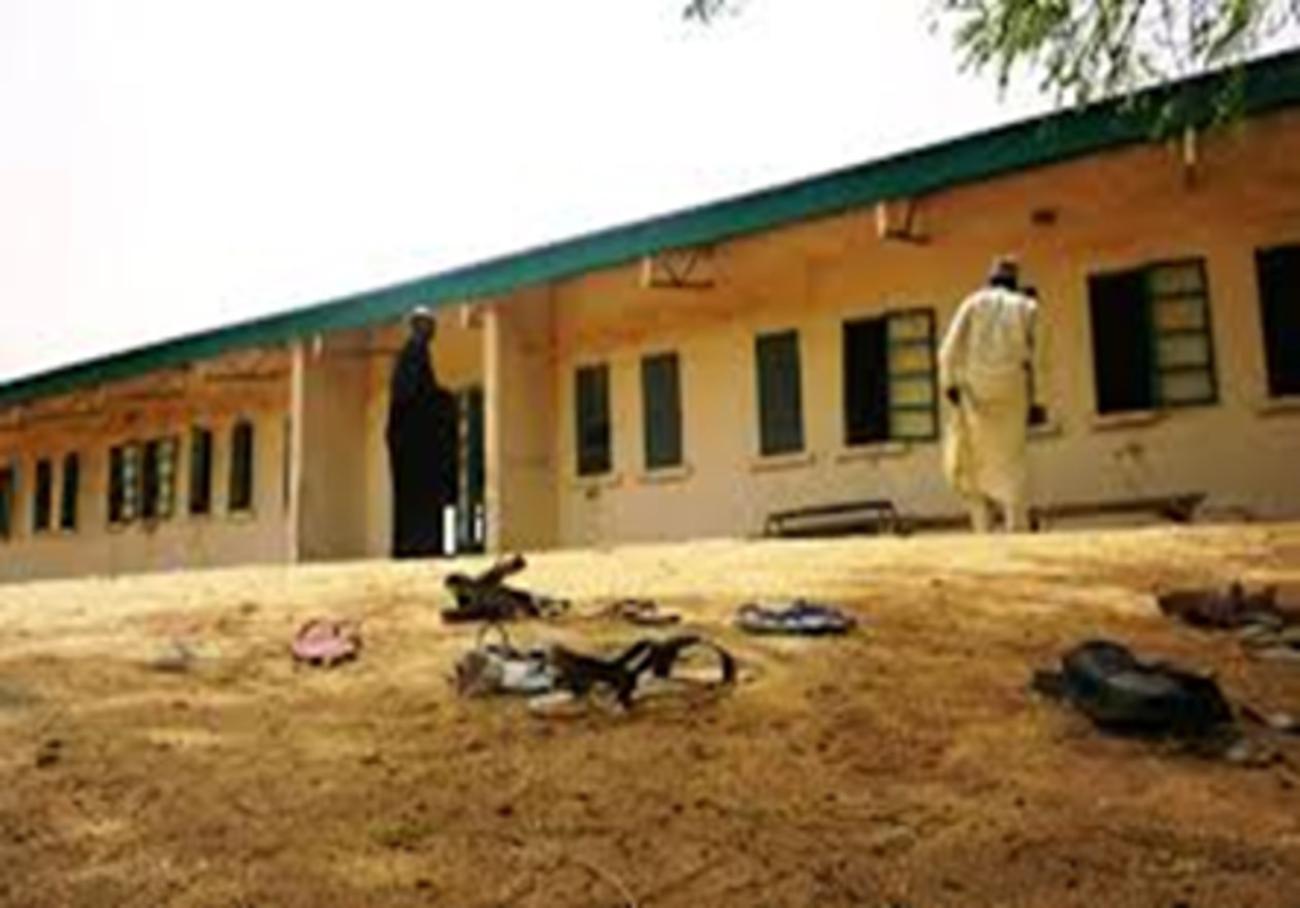In defence of schools and children

With training and support from UNICEF and KfW, school-based management committees in Borno are taking the lead in keeping schools and children safe
If Usman Mustapha, a resident of Mangari in the Biu local government area (LGA) of Borno State had his way, no bush or grass would be allowed to grow around the Mangari Primary School.
The 55-year-old school-based management committee (SBMC) member considers it wise to burn the yards of grassland that surround the premises before the school eventually reopens.
“The school is near a bushy area. We used to see snakes and scorpions around,” he said. “It is a danger because they might harm children. The only solution is to cut down the grass and burn the area totally.”
Mustapha’s plan for the unwieldy bush around the school is just part of his long-standing commitment to education and school safety. The father of fourteen children has been an active member of the SBMC of Mangari Primary School since joining in 2018.
“I support education because that is the only way to fight poverty, unemployment and illiteracy in our community. I am also happy when I see children learning positive things that will make a difference in their lives,’’ he said.
Mustapha was one of 500 SBMC members across two Borno State LGAs who were recently trained in COVID-19 prevention, school safety, record keeping and reporting. He said the training, provided by UNICEF with support from the KfW Fund, will allow him to complement the efforts of government and other stakeholders in the education sector. It has also taught him the importance of the community’s role in school management.
“We were trained on how to mobilise and encourage parents to send their children to school,’’ he said. “We were also taught how to keep records and become accountable and transparent.’’
The SBMC is a national structure established by the Nigerian federal government in 2007 to support the delivery of education at both the basic and secondary school level. Along with fostering a good relationship between school authorities and the community, it has helped identify areas of challenge in school administration.
A lack of funding support and capacity building has, however, rendered SBMCs ineffective in many schools.
In July 2020, UNICEF engaged master trainers to build the capacity of 500 SBMC members in small groups of 20, in line with COVID-19 prevention guidelines. Drawn from a total of 100 schools in both the Biu and Shani LGAs, the two-week training focused on reviewing and developing school improvement plans and conflict, disaster and risk reduction strategies. It also examined awareness and prevention of school-related gender-based violence and strategies for COVID-19 management and prevention in schools in north-east Nigeria.
In nearby Liya in the Shani LGA, 17-year-old Lubabatu Hudu is a member of the SBMC of Liya Junior Day Secondary School and was one of those selected for training. She is convinced that fencing the school will both protect children from attack and prevent the theft of property from the school.
Hudu has been a member of the SBMC since 2019. She joined in order to help provide security and to encourage parents to make sure their daughters received an education. “My major motivation was to encourage fellow parents to send their girl-children to school and encourage girls to stay in school and continue their education even after senior secondary school,’’ she said.
An active SBMC member, Hudu was happy to learn how to mobilise resources, both human and physical, to develop and improve the school.
“There many things we can do to enhance the safety of children and staff and we were taught how to prepare a school emergency preparedness response plan,” she said. “I enjoyed the training and I love education. I support education because I want to see children progressing. I want to help children to attain their future dreams.”


